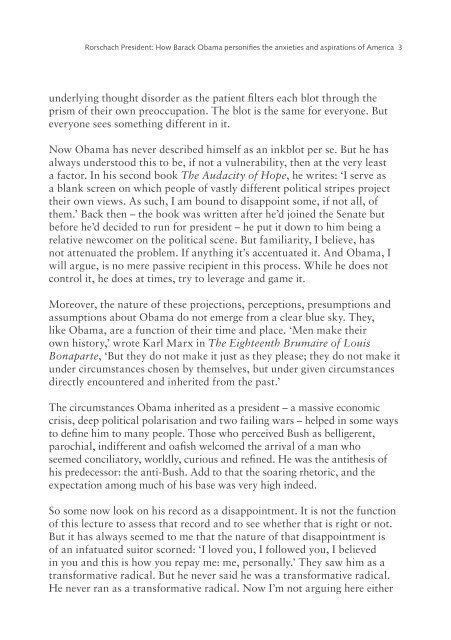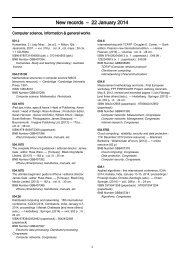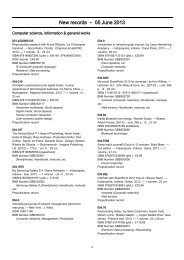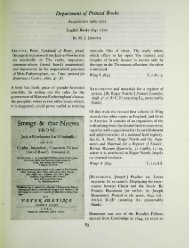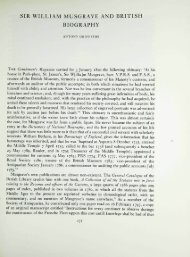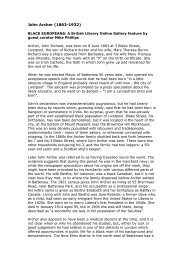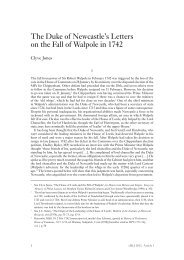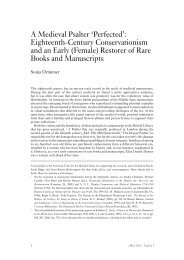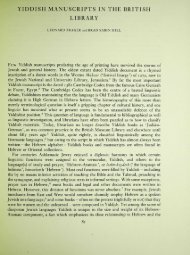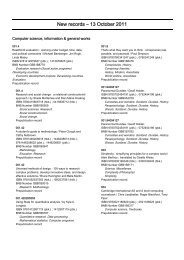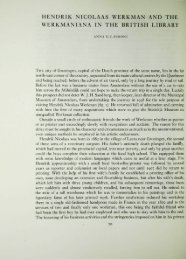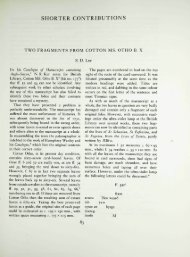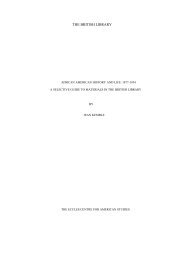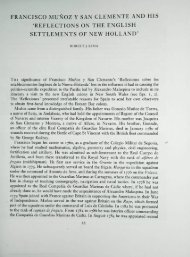Rorschach President: How Barack Obama personifies the anxieties ...
Rorschach President: How Barack Obama personifies the anxieties ...
Rorschach President: How Barack Obama personifies the anxieties ...
Create successful ePaper yourself
Turn your PDF publications into a flip-book with our unique Google optimized e-Paper software.
<strong>Rorschach</strong> <strong>President</strong>: <strong>How</strong> <strong>Barack</strong> <strong>Obama</strong> <strong>personifies</strong> <strong>the</strong> <strong>anxieties</strong> and aspirations of America 3<br />
underlying thought disorder as <strong>the</strong> patient filters each blot through <strong>the</strong><br />
prism of <strong>the</strong>ir own preoccupation. The blot is <strong>the</strong> same for everyone. But<br />
everyone sees something different in it.<br />
Now <strong>Obama</strong> has never described himself as an inkblot per se. But he has<br />
always understood this to be, if not a vulnerability, <strong>the</strong>n at <strong>the</strong> very least<br />
a factor. In his second book The Audacity of Hope, he writes: ‘I serve as<br />
a blank screen on which people of vastly different political stripes project<br />
<strong>the</strong>ir own views. As such, I am bound to disappoint some, if not all, of<br />
<strong>the</strong>m.’ Back <strong>the</strong>n – <strong>the</strong> book was written after he’d joined <strong>the</strong> Senate but<br />
before he’d decided to run for president – he put it down to him being a<br />
relative newcomer on <strong>the</strong> political scene. But familiarity, I believe, has<br />
not attenuated <strong>the</strong> problem. If anything it’s accentuated it. And <strong>Obama</strong>, I<br />
will argue, is no mere passive recipient in this process. While he does not<br />
control it, he does at times, try to leverage and game it.<br />
Moreover, <strong>the</strong> nature of <strong>the</strong>se projections, perceptions, presumptions and<br />
assumptions about <strong>Obama</strong> do not emerge from a clear blue sky. They,<br />
like <strong>Obama</strong>, are a function of <strong>the</strong>ir time and place. ‘Men make <strong>the</strong>ir<br />
own history,’ wrote Karl Marx in The Eighteenth Brumaire of Louis<br />
Bonaparte, ‘But <strong>the</strong>y do not make it just as <strong>the</strong>y please; <strong>the</strong>y do not make it<br />
under circumstances chosen by <strong>the</strong>mselves, but under given circumstances<br />
directly encountered and inherited from <strong>the</strong> past.’<br />
The circumstances <strong>Obama</strong> inherited as a president – a massive economic<br />
crisis, deep political polarisation and two failing wars – helped in some ways<br />
to define him to many people. Those who perceived Bush as belligerent,<br />
parochial, indifferent and oafish welcomed <strong>the</strong> arrival of a man who<br />
seemed conciliatory, worldly, curious and refined. He was <strong>the</strong> anti<strong>the</strong>sis of<br />
his predecessor: <strong>the</strong> anti-Bush. Add to that <strong>the</strong> soaring rhetoric, and <strong>the</strong><br />
expectation among much of his base was very high indeed.<br />
So some now look on his record as a disappointment. It is not <strong>the</strong> function<br />
of this lecture to assess that record and to see whe<strong>the</strong>r that is right or not.<br />
But it has always seemed to me that <strong>the</strong> nature of that disappointment is<br />
of an infatuated suitor scorned: ‘I loved you, I followed you, I believed<br />
in you and this is how you repay me: me, personally.’ They saw him as a<br />
transformative radical. But he never said he was a transformative radical.<br />
He never ran as a transformative radical. Now I’m not arguing here ei<strong>the</strong>r


